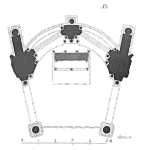
This is a two part series where I outline the basic elements of creating and supporting a reliability program.
Your Reliability Engineering Professional Development Site
Find all articles across all article series listed in reverse chronological order.
by Fred Schenkelberg Leave a Comment

This is a two part series where I outline the basic elements of creating and supporting a reliability program.
by Fred Schenkelberg 1 Comment

For Reliability Engineers to converse with one another and with non-technical people in an organization, it is necessary for the language of reliability to be widely understood. These terms form the backbone of a working vocabulary and should be well understood by Certified Reliability Engineers.
Availability: Fraction of time that a system is usable. Steady state Availability = MTBF/(MTBF+MTTR) [Read more…]
by Fred Schenkelberg Leave a Comment

If only we had a crystal ball or another device to predict the future. From the general wondering about the enemies next move, to the soldier hoping their equipment will work. In the corporate boardroom estimating the competitions next move, to the maintenance manager ordering spare parts, we have many uses for knowing the future.
We often look to past performance to provide an indication of the future. Has this mutual fund regularly provided adequate returns? If so, we predict it will going forward. And anyone that has reviewed mutual fund performance also has read or heard the admonishment to not use past performance to estimate future returns. Mutual funds, markets, business and battlefields all change and respond in sometimes unforeseen ways. [Read more…]
by Fred Schenkelberg 2 Comments

A continuous distribution is useful for modeling time to failure data. For reliability practitioners, the Weibull distribution is a versatile and powerful tool. I often fit a Weibull when first confronted with a life dataset, as it provides a reasonable fit given the flexibility provided by the distributions parameters. [Read more…]
by Fred Schenkelberg 3 Comments

What is reliability management? Reliability Engineering? Would a product design or an organization benefit with a focus on reliability management and engineering? What is the value of a focus on reliability?
Any organization, that develops and produces products, has resource limits. It may be talent, capabilities, time, funding, or some combination of these. Yet, the goal to create a product that meets customer expectations includes the concept of product reliability. The product should provide the expected functions over time, without failure. This expected product reliability occurs, even if the design requirements and advertising do not explicitly mention product reliability. [Read more…]
by Fred Schenkelberg Leave a Comment

Do you let events happen to you, or do events follow your designs and expectations? Are you a spectator or actor? Do you wonder about your product’s future or do you control your product’s future? Are you reactive or proactive?
Every reliability and maintenance program is a system. Every program has inputs, such as product testing results and field returns. Every reliability program has outputs, such as product design and production. In the most basic terms, a reliability program includes product specifications for functionality including expected durability. The program includes some form of design, verification, production and field performance. Given this basic lifecycle description, it is possible for two types of approaches to executing the product lifecycle. [Read more…]
by Fred Schenkelberg 3 Comments

It is not enough to have a good mind; it is more important to use it well. — Descartes
Learning and Value
Over the past week, I’ve received a couple of questions about the pursuit of a graduate degree in reliability engineering and about preparing for the CRE. One question was particularly interesting – how will a reliability engineering graduate degree or CRE help my career? [Read more…]
by Fred Schenkelberg Leave a Comment

In another post, I started the discussion about variability and interquartile range. This is part 2 of that discussion and will focus on variance.
With rare exception, most distributions or groups of data require more than one parameter (or statistic) to fully describe both the location and spread (scale and shape) of the group of data. Is the data clumped tightly about some value, or spread out over a wide range. [Read more…]
by Fred Schenkelberg Leave a Comment

Years ago I had the opportunity to assess the reliability programs of two organizations. They made similar products for different segments of the market, and they both had about the same size an organization. Two years previously, both organizations lost the reliability professional from their staffs. Furthermore, both teams were located in one building, one upstairs and the other downstairs, which made scheduling the assessment interviews convenient.
by Fred Schenkelberg 1 Comment

I write quite a bit about reliability and have plans to write quite a bit more. I have looked to prolific authors in our field with admiration and respect: Wayne Nelson, Patrick O’Connor or Terrence O’Hanlon, they all share so much knowledge. They make the subjects and material clear and accessible. They have in large part helped me all throughout my career by enabling my ability to solve problems and create value.
Of course, there are many others that have contributed to my career and my approach to engineering. My colleagues, managers, and mentors have each helped to educate and develop my skills and approach. Every single client has also contributed. As many of you have heard from me, I learn from every encounter and feel very fortunate to have a career that enables such wonderful exploration and learning as part of my day-to-day work. [Read more…]
by Fred Schenkelberg 1 Comment

This week I received a question from the ASQ Librarian concerning a person’s question about one of the CRE Question bank questions. It was a nice two-part question concerning a hypothesis test of a sample means value and degradation.
Here’s the question as sent over for consideration. [Read more…]
by Fred Schenkelberg 11 Comments

Last week I posted about the Binomial probability density function, and it is useful when calculating the probability of exactly x successes out of n trials given p probability of success for each trial.
Well, what happens if you want to know the probability of 2 or more successes for example? [Read more…]
by Fred Schenkelberg 2 Comments

There are many cases where the results of an experiment (or trial) are either it works or it doesn’t, pass/fail, success/failure. Only two possible outcomes one of which we define as success the other outcome as failure. The binomial distribution is suitable if the random variable (the set of experimental or trial outcomes) when
by Fred Schenkelberg 6 Comments

Running through a couple of practice CRE exams recently (yeah, I know I should get out more…) found a few formulas kept coming up in the questions. While it is not a complete list of equation you’ll need for the exam, the following five will help in many of the questions. They seem popular maybe because the relate to key concepts in the body of knowledge, or they are easy to use in question creation. I do not know why. [Read more…]
by Fred Schenkelberg 4 Comments

Received a sample problem from someone preparing for the CRE exam saying it was a tricky one.
The hazard rate function for a device is given by
0.001 if t ≤ 10 hours and 0.01 if t > 10 hours
What is the reliability of this device at 12 hours?
I first draw the hazard function [Read more…]